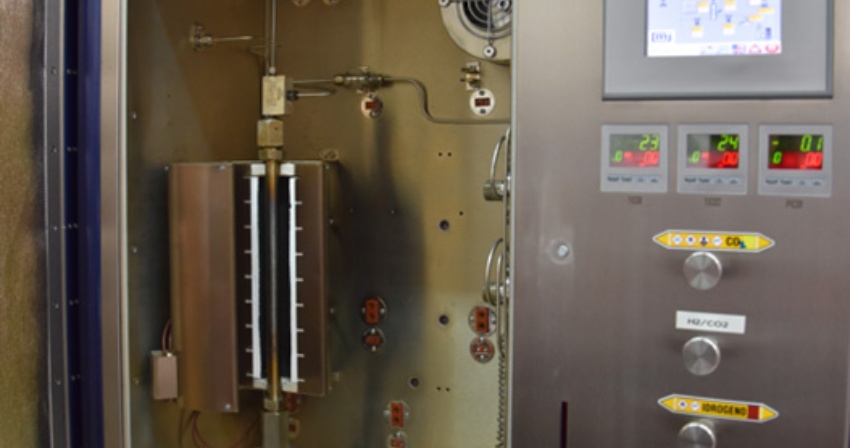Development of catalysts for the synthesis of methanol and dimethyl ether
CEEP (Centro Eccellenza sull’Energia Pulita - Clean Energy Centre of Excellence) research activities in the field of carbon dioxide reuse technologies.
Date:
06 October 2021
Due to its established expertise, the relevance of the experimental successes achieved and the importance of the expected results, Sotacarbo has turned its attention to the development of catalysts for the production of liquid fuels by hydrogenation with CO2, in particular catalysts optimized for the production of methanol and bifunctional catalysts for the direct synthesis of dimethyl ether. The activity, characterized by relatively low operating costs, enables the development of innovative materials applicable to industry. The research activity is focused on the synthesis and experimental characterization of new catalytic systems.
As far as methanol production is concerned, the study involves:
- Catalysts deriving from hydrotalcite precursors (processing of the experimental data acquired in 2019 for publication in an international scientific journal);
- Catalysts prepared by soft-template method (optimization of composition for the synthesis and characterization of new systems);
- Catalysts prepared by soft-template method and Incipient wetness impregnation or two solvents approaches (synthesis and characterization of new systems).
Regarding dimethyl ether (DME), the research activity is aimed at the synthesis and chemical-physical characterization of new catalytic systems for DME production processes.
The catalysts are characterized with XRD, TEM, CHN/S and N2 physisorption analyses (in collaboration with the University of Cagliari) in order to correlate textural and microstructural properties with their performances as CO2 hydrogenation catalysts. The performance of the fuel is tested in a high-pressure bench reactor under realistic conditions (250°C, 30 bar, gas feed of 75% H2 / 25% CO2 by volume) and compared with that of a commercial Cu / ZnO based catalyst. Most of the tested catalysts show very high performance and a number of them are currently covered by international patent applications (PCT / EP2019 / 053068).
Parallel to the experimental study, conducted in close collaboration with the University of Cagliari (Department of Chemical and Geological Sciences), activities on kinetic modelling of catalytic systems conducted together with the Indian Institute of Technology Madras (IITM, India) were carried out, and a new activity on system modelling will be launched in collaboration with LEAP (Laboratorio Energia e Ambiente Piacenza).
Last update
06/11/2024, 12:03

